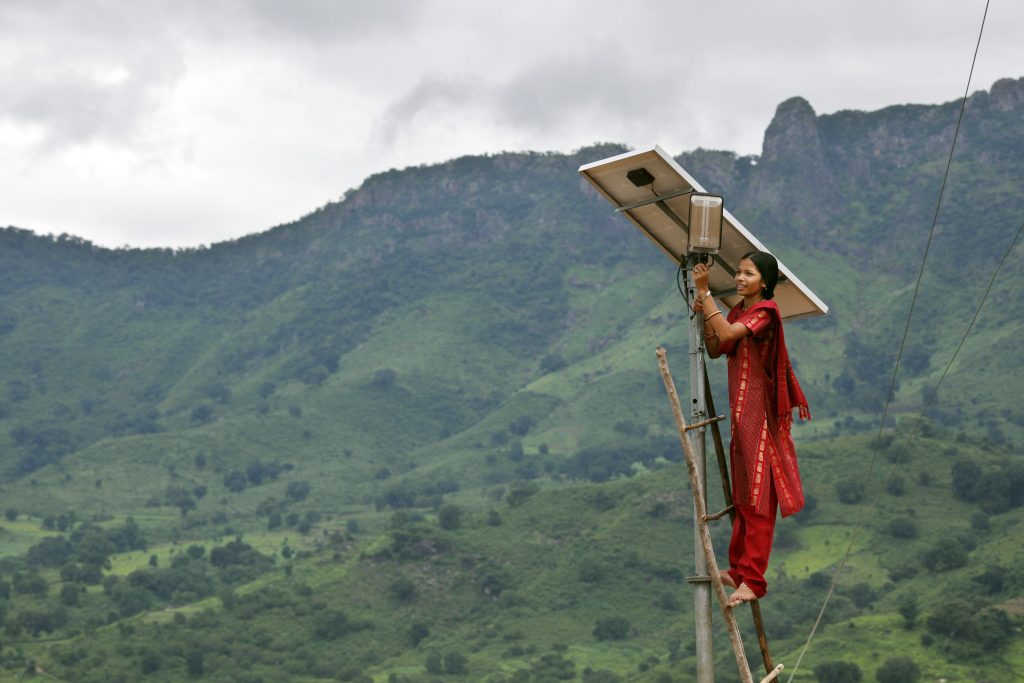In 2022, the COP 27 Presidency introduced the Sharm-El-Sheikh Adaptation Agenda, a set of 30 global adaptation outcome targets by 2030. Reaching them will increase the resilience of 4 billion people to climate shocks. Spearheaded by the UN Climate Change High-Level Champions and the Marrakech Partnership for Global Climate Action, the Agenda is meant to accelerate transformation across five impact systems: food and agriculture, water and nature, coastal and oceans, human settlements, and infrastructure.
The objective of the Sharm-El-Sheikh Adaptation Agenda is to serve as aspirational actions, and to inform state and non-state adaptation agendas and outcomes. The 30 targets will continue to be enhanced and refined based on scientific results.
Why is it important?
Decarbonisation is not enough; it is only one part of the equation. Past emissions have already pushed our planet into a dangerous tipping point. The IPCC’s Sixth Assessment Report is clear that climate impacts are increasing and that most of them are interconnected and often irreversible. Humanity needs to significantly increase actions and investments to adapt to the current and unavoidable impacts of climate change. We should be working towards a resilient world where we don’t just survive climate shocks and stresses but thrive in spite of them.
In comparison to mitigation efforts, adaptation and resilience are far behind. The Agenda aims to bring actors together, providing common and tangible targets.
How should it be implemented?
Resilience is needed globally but starts with local adaptation solutions that depend on the specific context of geographies and communities. The needs and preferences of the most affected people and areas should guide adaptation and resilience roadmaps.
Incremental changes to gradually adapt to the different climate hazards are no longer sufficient; societies need to rapidly accelerate action creating what the IPCC calls transformative solutions and building climate resilient development through a more holistic approach.
The individual efforts of regions, cities, businesses, investors and civil society taking climate action is critical – but racing in their tracks alone will only get us part of the way. We need coordinated action from different players. Adaptation and resilience transformative solutions are advanced when multiple sectors and actors move in synchronisation.
What is it informed by?
The Sharm-El-Sheikh Adaptation Agenda is informed by an analysis of the hazards that vulnerable communities face and actions needed to build resilience against those hazards. The intensity of these hazards varies globally but they represent an existential threat to billions of people. The major threats can be summarised as:
- Ocean warming and acidification
- Coastal flooding
- River flooding
- Extreme wet weather events (e.g. storms, cyclones)
- Droughts
- Extreme heats (e.g. wildfires)
- Soil erosion
A systemic approach to building resilience
The Sharm-El-Sheikh Adaptation Agenda provides specific targets at a systems level – but with the flexibility for local application. These targets place people at the centre and are focused on the highest impact solutions for the most vulnerable coastal, rural and urban communities by addressing the most pressing climate risk and hazards.
The adaptation outcomes for each impact system define simple, specific, measurable indicators delivered through specific policies that are applicable on a large-scale, impacting many people across multiple geographies
Collectively, they articulate what key actors must do, and by when, to deliver systems change. This creates a shared vision for how all the different players in a system can contribute to the whole.
Learn more and see what impact system different actions can fit within.
An updated version of the Sharm El-Sheikh Adaptation Agenda will be released at COP28, within the Resilience Hub. You can participate in the event virtually or in-person. Sign up to the Resilience Hub virtual platform to tune in.
Header image: Abbie Trayler-Smith / Panos Pictures / Department for International Development.jpg

